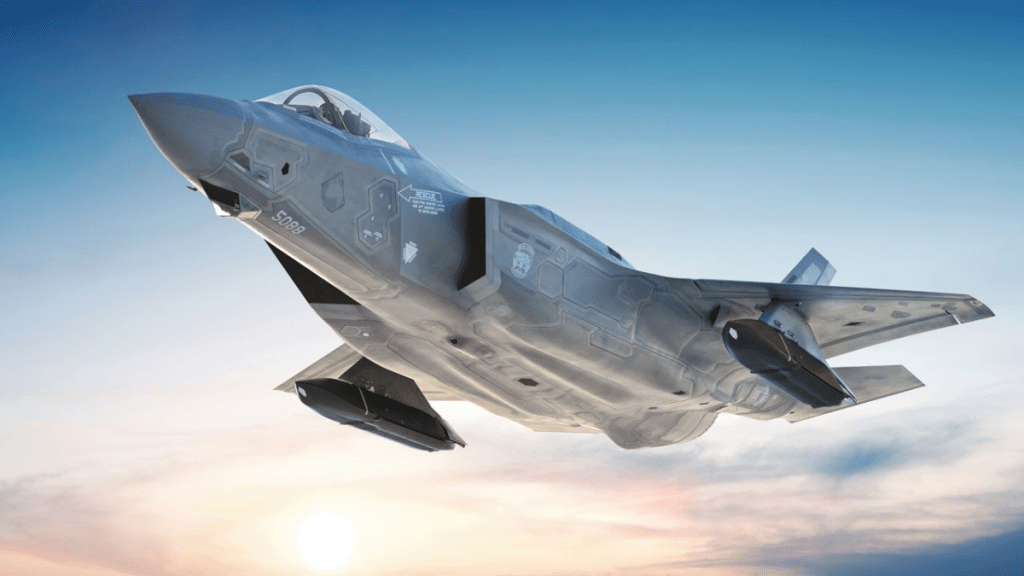India is weighing options to placate the White House, including boosting US imports, and has ruled out immediate retaliation to President Donald Trump’s surprise 25% tariff threat, according to people familiar with the matter told Bloomberg.
India Rejects F-35 Fighter Jet Offer
According to the officials, India has informed the US that it’s not keen to buy the F-35 stealth fighter jets. During Modi’s visit to the White House in February, Trump had offered to sell the expensive warplanes to India. However, the Modi government is more interested in a partnership focused on jointly designing and manufacturing defense equipment domestically, the officials said.
Officials in New Delhi were shocked and disappointed by Trump’s announcement on Wednesday, the people said, asking not to be identified as the discussions are private. The government is keen to keep bilateral trade talks on track and is exploring ways to increase purchases from its largest trading partner, they said.
India is considering ramping up its natural gas purchases from the US and increasing imports of communication equipment and gold, the people said. They added that boosting these purchases could help narrow India’s trade surplus with the US over the next three to four years. No defense purchases are being planned, they said.
Officials in New Delhi are not considering any immediate retaliation to Trump’s tariff threat, the people said. The government has already reserved its right at the World Trade Organization to retaliate against the higher US duties on steel and automobiles at a time of its choosing.
Despite considering an increase in purchases of American goods, the Modi government is unlikely to buy additional defense equipment from the US — a key demand from former US President Donald Trump, officials familiar with the matter said, requesting anonymity because the discussions are private.
Trade Tensions and Strategic Diplomacy
Trump’s recent remarks risk further straining already fragile US-India ties. The US president has repeatedly said that his use of trade pressure helped secure a ceasefire that ended a four-day armed conflict between India and Pakistan in May — a claim strongly denied by Modi and senior officials in New Delhi.
Back in February, when relations between the two leaders were notably warm, Modi extended an invitation to Trump to visit India. New Delhi is expected to host a leaders summit of the Quadrilateral Security Dialogue, or Quad — which comprises the US, Japan, India, and Australia — later this year.
“India is not in a position to promise huge import of energy from the US. Also, we are not in a position to talk about huge Indian investment taking place in the US,” said Ajay Dua, a former commerce ministry official, in an interview with Bloomberg TV, adding that the country now needs to be a “little more accommodating in the ongoing negotiations.”

